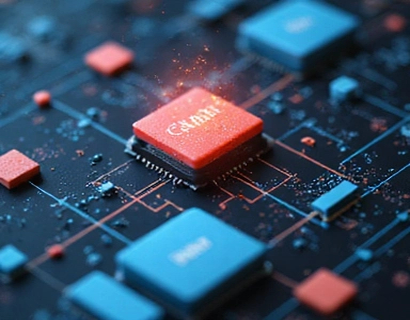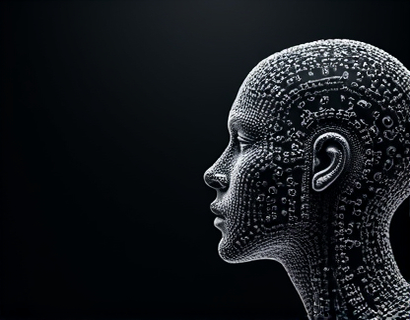Empowering Democratic Governance: Leveraging Smart-Contract Innovations for Enhanced Civic Participation and Transparency
In recent years, the intersection of technology and governance has given rise to innovative solutions aimed at enhancing democratic processes. Among these, smart contracts and advanced management tools stand out for their potential to streamline decision-making, increase transparency, and boost civic engagement. This article delves into the transformative impact of these technologies on democratic governance, exploring how they can foster a more participatory and transparent political environment.
The Role of Smart Contracts in Governance
Smart contracts are self-executing contracts with the terms of the agreement directly written into code. They run on blockchain technology, a decentralized and immutable ledger that ensures transparency and security. In the context of governance, smart contracts can automate and enforce the execution of agreements between citizens and government entities, reducing the need for intermediaries and minimizing the potential for corruption.
One of the primary advantages of smart contracts in governance is their ability to ensure that predefined conditions are met before executing a transaction or action. For example, in the allocation of public funds, smart contracts can be programmed to release funds only when specific criteria, such as project milestones, are fulfilled. This not only enhances efficiency but also builds trust among citizens, as the process is transparent and verifiable.
Enhancing Transparency through Blockchain
Blockchain technology, the backbone of smart contracts, offers unparalleled transparency. Every transaction on a blockchain is recorded in a public ledger, accessible to anyone with the necessary permissions. This level of transparency is crucial in governance, where accountability and trust are paramount. By making government operations more visible, blockchain can help reduce corruption and increase public confidence in governmental processes.
Moreover, the immutability of blockchain ensures that once a transaction is recorded, it cannot be altered or deleted. This feature is particularly valuable in maintaining the integrity of electoral processes, land registries, and other critical governance functions. Voters can verify the results of elections, and property owners can ensure that land records are accurate and tamper-proof.
Boosting Civic Participation
Smart contracts and blockchain technology can significantly enhance civic participation by making democratic processes more accessible and user-friendly. Traditional voting systems often face challenges such as long lines, lack of access, and voter disengagement. Blockchain-based voting systems can address these issues by providing a secure, convenient, and transparent way for citizens to cast their votes.
For instance, a blockchain-based voting platform can allow citizens to vote from anywhere with an internet connection, reducing barriers to participation. The system can also provide real-time updates on vote counts, increasing transparency and reducing the potential for disputes. Additionally, smart contracts can be used to automate the verification of voter eligibility, ensuring that only qualified individuals can vote.
Case Studies: Successful Implementations
Several countries and organizations have already begun experimenting with smart contracts and blockchain in governance. One notable example is Estonia, a digital pioneer that has integrated blockchain into various government services. The Estonian e-Residency program allows non-citizens to access Estonian digital services, including voting in certain elections, through a secure and transparent blockchain-based system.
Another example is the use of smart contracts in the city of Zug, Switzerland, known as the "Crypto Valley." The city has implemented a blockchain-based identity verification system that simplifies the process of accessing public services. This system not only enhances security but also improves the user experience for both residents and visitors.
Challenges and Considerations
While the potential benefits of smart contracts and blockchain in governance are significant, there are also challenges that need to be addressed. One of the primary concerns is the technical complexity and the need for robust infrastructure. Implementing these technologies requires a skilled workforce and significant investment in technology and training.
Another challenge is ensuring inclusivity. Not all citizens have equal access to the internet or the technical knowledge required to use blockchain-based systems. Governments and organizations must work to bridge the digital divide to ensure that these innovations benefit all segments of society.
Privacy is also a critical consideration. While transparency is essential, it must be balanced with the need to protect sensitive personal information. Smart contracts and blockchain systems must be designed with strong privacy features to safeguard citizen data.
Future Prospects: Towards Universal Democracy
The integration of smart contracts and blockchain technology in governance holds the promise of a more democratic and participatory future. By streamlining decision-making processes, enhancing transparency, and boosting civic engagement, these technologies can help bridge the gap between citizens and government.
Looking ahead, the development of more user-friendly interfaces and the expansion of blockchain networks will be crucial in widespread adoption. Collaboration between governments, tech companies, and civil society organizations will be essential in creating inclusive and effective governance solutions.
Ultimately, the goal is to create a system where democratic processes are not only more efficient and transparent but also more accessible to all. By leveraging the power of smart contracts and blockchain, we can move closer to a truly universal democracy, where every voice is heard and every citizen has a say in shaping their future.











































